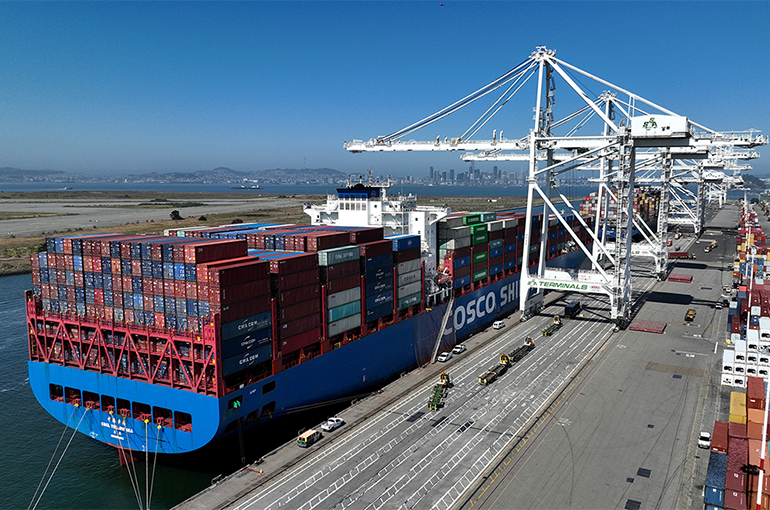 Chinese Shipyards Are Fully Booked Till 2026, Industry Expert Says
Chinese Shipyards Are Fully Booked Till 2026, Industry Expert Says(Yicai) Feb. 8 -- China’s shipyards have a surplus of orders as a result of robust demand, with the production schedules of most already fully booked through 2026, according to an expert.
Some shipbuilders have even begun arranging their schedules for 2028, Zheng Yiming, director of the statistical information department at the China Association of the National Shipbuilding Industry, said in an interview with Yicai.
The country’s shipbuilders have quickly grown their global market share since 2021, Zhen said, adding that as technologies have improved, companies have started accepting more orders of special transport vessels with higher added value, such as chemical tankers, ro-ro carriers for automobiles, and reefer ships.
China made over half of the world’s new deadweight tonnage last year, and domestic shipbuilders took five spots in the global top 10, according to industry ministry data. They also accounted for nearly 67 percent of new orders, making up seven of the global top 10, and 55 percent of orders on hand, taking six of the top 10 spots.
In recent years big shipyards have maintained their world-leading position in mainstream vessels like bulk carriers, crude carriers, as well as container ships and some smaller firms, armed with new technologies, are quickly gaining ground in special vessels. Among the 18 major types of ships, Chinese firms ranked No. 1 for new orders in 14 categories last year, Zheng said.
The supply chain is also becoming more complete as China had 21 steelmakers able to produce marine steel plates as of last year and they have a cost advantage in comparison to those of Japan, South Korea, Europe, and the United States, he said.
The main uncertainty that domestic shipbuilders face are changes in steel prices and the yuan’s exchange rate against the US dollar, Zheng said, so they should sign long-term deals with iron and steel suppliers to control the risk of rising raw material costs. They should also work with financial institutions to manage exchange risks through forward foreign exchange settlement, he added.
The demand for ships meeting green and low-carbon standards should provide Chinese companies with new opportunities for further growth, per Zheng. In this regard, China has made breakthroughs in areas such as methanol and ammonia fuel supply systems, methanol boilers, carbon capture systems, and low-speed dual-fuel engines.
Editors: Tang Shihua, Emmi Laine